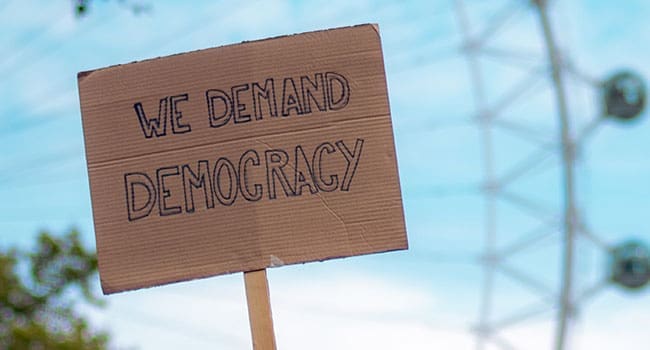 In his 1995 book The Vision of the Anointed, maverick American economist Thomas Sowell took aim at what he described as the prevailing vision of the intellectual and political elites. Dubbing them “the anointed,” Sowell worried that the degree to which their assumptions were taken for granted by “so-called thinking people” meant that no other way of looking at the world would be considered legitimate.
In his 1995 book The Vision of the Anointed, maverick American economist Thomas Sowell took aim at what he described as the prevailing vision of the intellectual and political elites. Dubbing them “the anointed,” Sowell worried that the degree to which their assumptions were taken for granted by “so-called thinking people” meant that no other way of looking at the world would be considered legitimate.
The media and expert reaction to the recent Brexit vote brought Sowell’s thesis to mind. You’d have to search high and low to find such an outpouring of bewilderment, condescension and bile.
It went like this.
How could the voters be so ignorant as to reject the counsel and values of the 21st century anointed? When the leadership of all major political parties, the IMF, the OECD, big business, Barack Obama and Mark Carney all joined hands to declare that the U.K. must stay in the EU, how could 52 percent of a high-turnout British electorate blithely blow them off?
Really, the cheek of it! It was as if democracy was wasted on the little people, who were obviously no more than ill-informed, xenophobic rubes.
One of the quoted experts, a Canadian professor of politics at the University of Oxford, made his confusion clear: “I cannot understand the majority of the electorate.” In a less self-absorbed world, this might be construed as disqualification from expert status. After all, profoundly disagreeing is one thing, but – for an expert – an inability to understand is quite another.
To be fair, not all quoted professors were so unreflective. Jeffrey Kopstein of the University of California even thought that there might be something to learn: “What this is telling us, as professors, as scholars, is that we need to get out more. Because none of my friends, Facebook friends, real friends, none of them, thought this was going to happen.”
But it wasn’t just academics who were wrong-footed.
Of the seven pollsters in the field during the campaign’s last week, only one projected a Leave victory. Populus, which polled during the final two days, even had Remain winning by 10 points. Wouldn’t you like to be a fly-on-the-wall as they explain that to their next prospective client?
As for the smart guys in the betting markets, their estimation was that Remain had a 96 percent chance of winning. And this, mind you, was after the polls had closed and the count was under way.
Along with the expressed disdain for the intelligence of the Leave voters, there were also some subtle attempts at delegitimising the vote.
The demographic split, whereby younger voters favoured Remain and older voters plumped for Leave, was a prime example. It was almost as if some votes should be considered more privileged than others.
And then there was the urban/rural cleavage. Sophisticated city dwellers could see the obvious advantages of the EU whereas backwards country folk just didn’t have the brain-power to get it.
But, on closer inspection, this line of argument frays around the edges.
Of the U.K.’s five largest cities, two – Birmingham and Sheffield – voted Leave. And a third – Leeds – came within 2,500 votes of doing so.
The point I’m making here has nothing to do with whether Brexit is or isn’t a good idea. Like all real world choices, it involves trade-offs, risks and an assessment of what values are ultimately most important.
However, as Sowell pointed out 20-odd years ago, when a particular perspective becomes dominant among elites – political, business, academic and journalistic – the range of “informed” public discussion shrinks dramatically. In a world where “diversity” has assumed talismanic proportions, there’s precious little of it to be found when “thinking people” engage on many controversial topics.
To borrow a formulation from Bloomberg columnist Megan McArdle, “In many ways, members of the global professional class have started to identify more with each other than they have with the fellow residents of their own countries.” But “nationalism and place” still matter to vast numbers of ordinary people. Hence the shock of Brexit’s reality check.
To quote an old poetic line from G.K. Chesterton while musing on the possibility of a specifically English nationalism: “But we are the people of England; and we have not spoken yet.” Now they have.
Pat Murphy casts a history buff’s eye at the goings-on in our world. Never cynical – well, perhaps a little bit. For interview requests, click here.
The views, opinions and positions expressed by columnists and contributors are the authors’ alone. They do not inherently or expressly reflect the views, opinions and/or positions of our publication.
© Troy Media
Troy Media is an editorial content provider to media outlets and its own hosted community news outlets across Canada.


